The Best Romanian Films of 2024
Every year, at the end of December, we look back at the Romanian films that left a mark on us and attempt to draft a “top three” list of the best productions. Whether they moved us, challenged us to think differently, or impressed us with their innovation in form and message, these films reflect a cinema in constant evolution – capable of capturing the complexities of our reality and exploring new artistic territories. In 2024, stories have intersected with history, social tensions, bitter humour, or personal fragments of people’s lives – a mosaic of internationally visible films, lesser-known yet bold and sometimes risky productions, packed with a range of emotions.
Our selection includes only those titles distributed in Romanian cinemas throughout the year – leaving out many options that had their world premiere at festivals, which we hope to revisit next year. Until then, we invite you to discover the cinematic adventures seen and appreciated this year by the Films in Frame editors and contributors.
***
– Ionuț Mareș
- Eight Postcards from Utopia (dir. Radu Jude, Christian Ferencz-Flatz)
- Holy Week (dir. Andrei Cohn)
- The New Year That Never Came (dir. Bogdan Mureşanu)
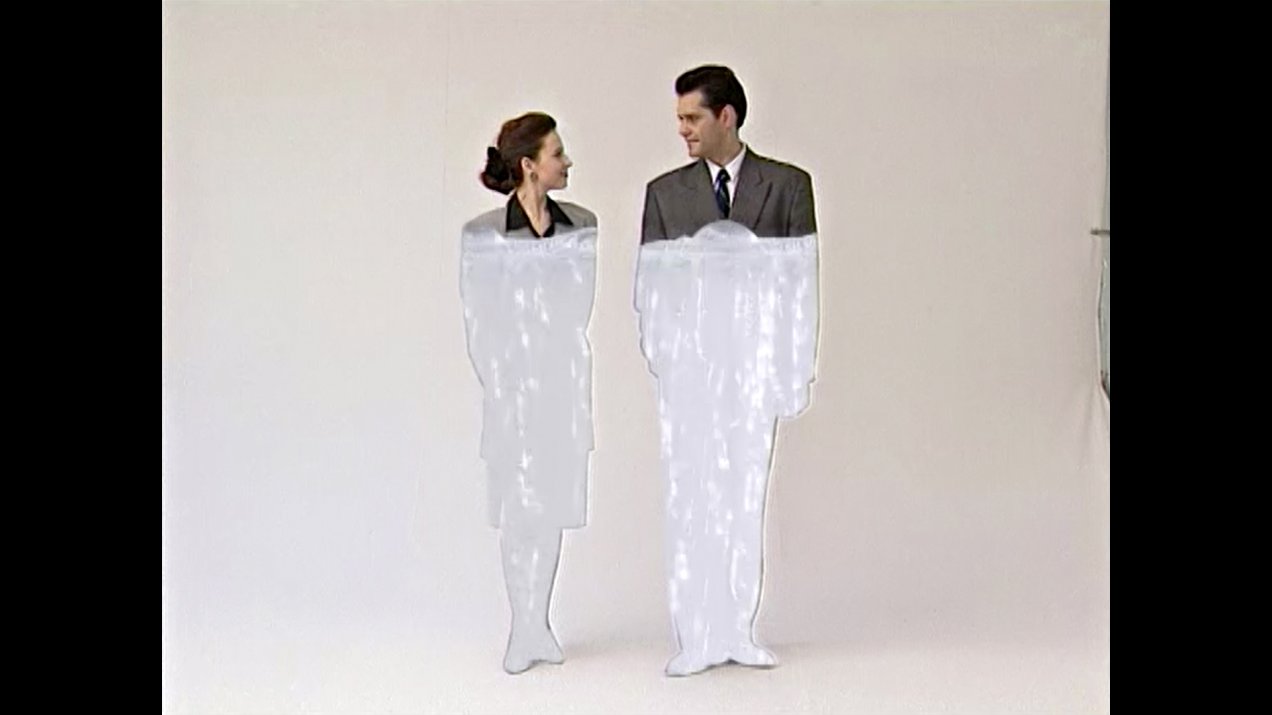
Can we look at our recent history through the comically absurd lens of TV commercials? This is the ambitious premise of the witty and provocative montage film by Radu Jude and Christian Ferencz-Flatz (with Cătălin Cristuțiu as editor). Romanian transition is portrayed here exclusively through the obsessions (or, as Jude might call them, the perversions) of advertisers and, implicitly, the companies they worked for. The filmmakers’ approach proves to be a spectacular 70-minute video essay that highlights, through its chaptered structure, the themes dominating the imaginary of Romania’s unique capitalism and, by extension, the entire post-communist society, as well as the reflexes of their visual representation through TV commercials. While people struggled in poverty, the advertising industry proposed an “ideal world”. The bitter humour resulting from this implied contrast makes the film unforgettable.
Andrei Cohn’s third feature impresses not only with its acting (offering Nicoleta Lefter a role that matches her immense talent and bringing attention to actors Doru Bem and Ciprian Chiricheș) and formal rigour. It is primarily significant for the risk it takes: portraying the transformation of a potential victim into a perpetrator and patiently exploring the nuances accompanying this descent into irrationality, within a social and historical context of simmering interethnic and interfaith tensions.
The New Year That Never Came evokes a pervasive sense that no aspect of people’s intimate or social lives – from children to senior citizens – escapes political interference. The totalitarian-communist regime poisons everything. Paranoia and fear are omnipresent, leading to a despair that envelops each character. Living in this decayed, altered society – barely holding on and where everything has become an exasperating, absurd facade – becomes unbearable. One of the standout debuts in recent Romanian cinema.
***
– Flavia Dima
- Eight Postcards from Utopia (dir. Radu Jude, Christian Ferencz-Flatz)
- Ext. Car – Night (dir. Andrei Crețulescu)
- The New Year That Never Came (dir. Bogdan Mureşanu)
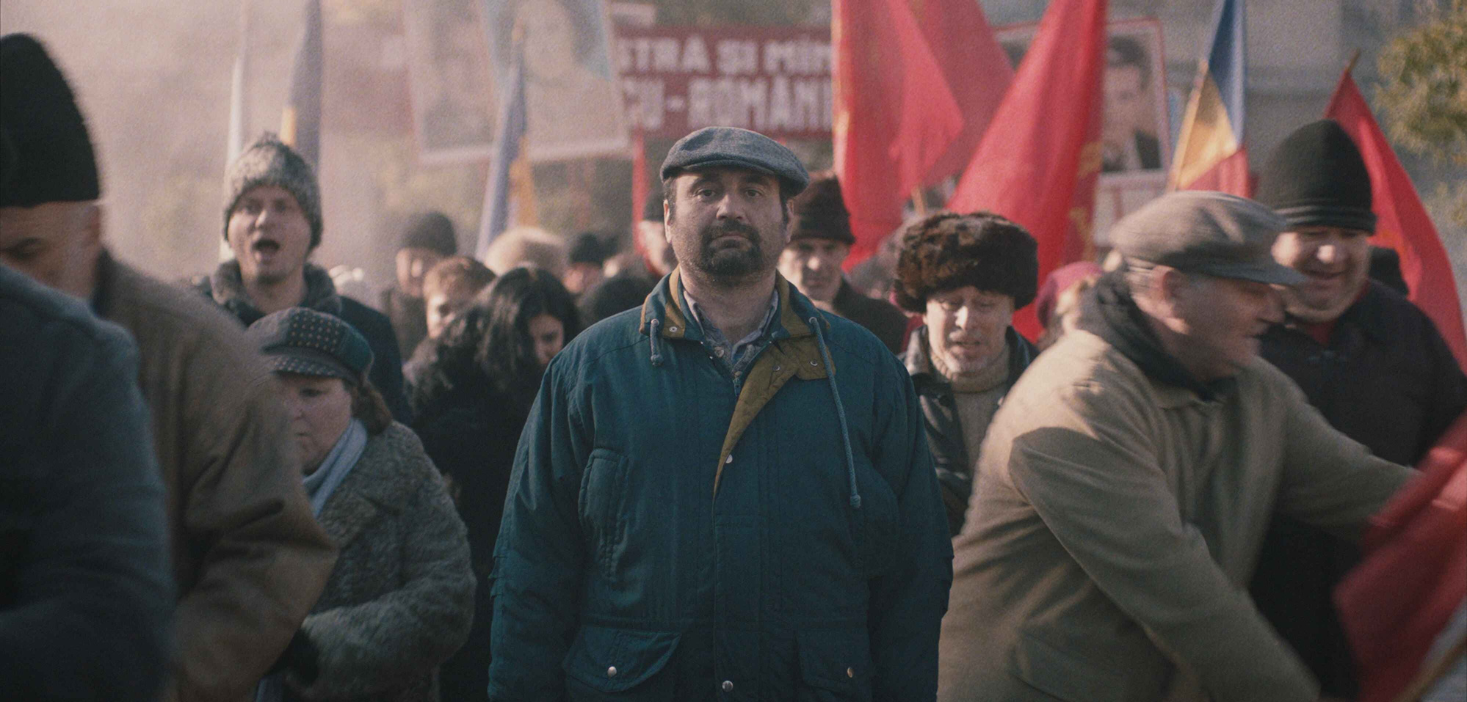
A paradoxical list, shaped by the quirks and paradoxes of Romanian film distribution – since the best titles of the year have so far only been seen at festivals: Maia – Portrait with Hands (dir. Alexandra Gulea), TWST: Things We Said Today (dir. Andrei Ujică; the only one to have a confirmed release so far), Ink Wash (dir. Sarra Tsorakidis), Triton (dir. Ana Lungu), and Sleep #2 (dir. Radu Jude). To be honest, this year I was most impressed with short films: Truth or Dare by Simona Borcea, Lucky Girl Syndrome by Raya al Souliman, and Claire’s Decision Not to Get Up by Teona Galgoțiu.
Eight Postcards from Utopia is, by far, the most striking and relevant film released during a year as erratic, inert, and chaotic as this one, where many strived to infuse a pertinent political subtext into their narratives. It’s also the funniest and most formally adept. (One might have expected the shock and whirlwind generated by the presidential elections to infuse, at least retrospectively, some of this year’s films with a sense of urgency – Holy Week, Three Kilometres to the End of the World – but that wasn’t the case.) There is something about Flatz & Jude’s film that, for a late-millennial viewer, can only be expressed in Gen Z slang: a core memory triggered by fragments of our most obscure, deeply buried TV memories from the transition period between the small and the very small screen.
The films in second and third place fall far behind the first but innovate within their respective domains. Although their approaches couldn’t be more different and both have shortcomings (there is no point in revisiting them here), I will always admire filmmakers who take risks over those who play it safe. The risks taken by Crețulescu and Mureșanu might be entirely distinct (while the former seeks to question and dismantle genre conventions, the latter aims to consolidate and align them with other sensibilities), but they are undeniably present. This is evident in the polarized reactions their films have provoked.
***
– Victor Morozov
- Eight Postcards from Utopia (dir. Radu Jude, Christian Ferencz-Flatz)
- Holy Week (dir. Andrei Cohn)
- Alice On & Off (dir. Isabela Tent)

Radu Jude and Christian Ferencz-Flatz present a point-blank collage about the media and political ethos of the post-communist transition, using commercials as archaeological samples. Andrei Cohn delivers a deeply serious, impenetrable film, thoughtfully examining the relationship between our present and Romania’s pre-modern history. Lastly, Isabela Tent undertakes a risky process, depicting an existential drama without shortcuts. At its core, one can glimpse the promising future of a filmmaker to watch.
***
– Ion Indolean
- Apă și talpă / Water and Feet (dir. Mircea Gherase, Lucian Mircu)
- Alice On & Off (dir. Isabela Tent)
- Holy Week (dir. Andrei Cohn)
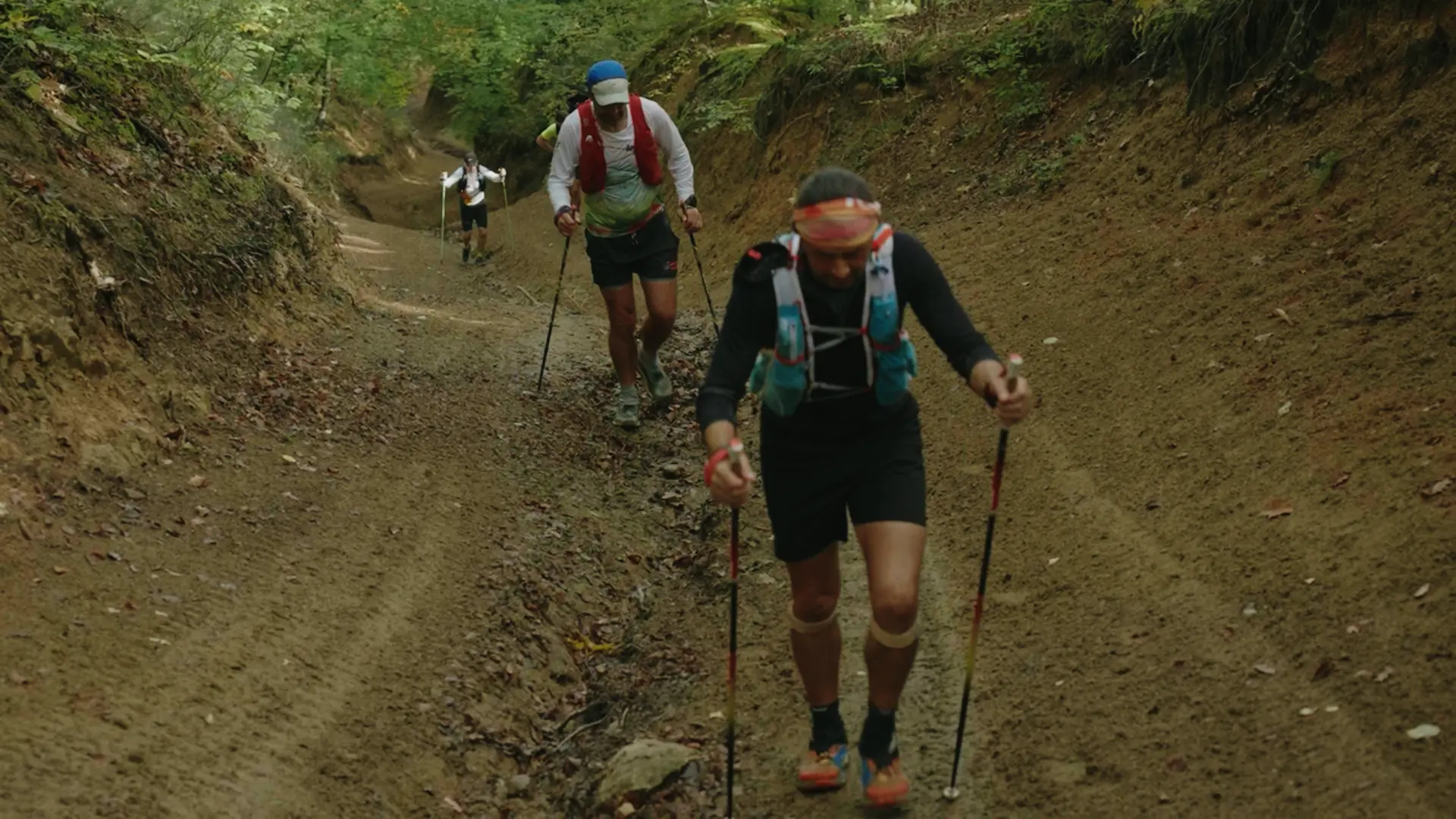
I see Romania as a land of contrasts, with extraordinary stories and challenging destinies. This makes it a perfect setting for documentary subjects where life surpasses fiction.
The highlight of Apă și talpă (i.e. Water and Feet) is Tibi Ușeriu, a former “bad boy” with a past marked by crime across Europe and nearly a decade of gruelling imprisonment (I recommend his book, 27 Steps, a metaphor for confinement in a sterile, maddening space, especially for a man of the woods and endless distances). Tibi turned his demons into strength, becoming a champion of the world’s toughest ultramarathons. Now, as an ambassador for Via Transilvanica, a 1,400 km trail through Romania, he embarks on a journey of self-confrontation alongside eight companions. Directors Mircea Gherase and Lucian Mircu document this adventure over nearly a month, capturing both the grandeur and the almost sadistic banality of a formative endeavour. The result is a profound, life-changing experience – and, for me, the most pleasant surprise of the year in terms of Romanian releases.
Alice grew up without parental support, being raised by her grandmother. First-time director Isabela von Tent documents Alice’s challenging transition from childhood to adulthood. Becoming a mother at 16 with Dorian, a man over 50, Alice turns to webcam work to support their son, Aristo, a boy deeply affected by the turbulent start of his life. Spanning a decade, the film exposes the harsh realities of a system that marginalizes desperate cases rather than supporting them. Marked by a tumultuous past, Alice speaks candidly about her struggles – dysfunctional family, drugs, and a child born too early. Despite her sometimes clumsy way of speaking, she is lucid and aware of her situation, yet trapped in an uncertain process. I was struck by the courage with which the camera immerses itself in this brutal world, offering no solutions but reflecting a harsh reality we cannot ignore.
I first met Andrei Cohn when I interviewed him for his debut feature, Back Home (2015). Although almost a decade has passed, that meeting at the Florin Piersic Cinema in Cluj remains vivid in my mind. In a world full of formalities, Andrei impressed me with the openness and depth of our conversation, as if we had known each other forever.
Flashforward: November 2023. I was in Bucharest for the launch of my book and I bumped into Andrei at a pizza place. He enthusiastically told me about his film project inspired by Caragiale’s novella, though he seemed slightly stressed by the production challenges. I was captivated by his idea of recreating an early 20th-century village by the Danube River – a feat that seemed almost science fiction. I saw the film at TIFF, at the same Florin Piersic Cinema, and it was a dense, special, and even unique experience.
***
– Radu Toderici
- The New Year That Never Came (dir. Bogdan Mureșanu)
- Three Kilometres to the End of the World (dir. Emanuel Pârvu)
- Zagor’s Death (dir. Adrian Dohotaru)
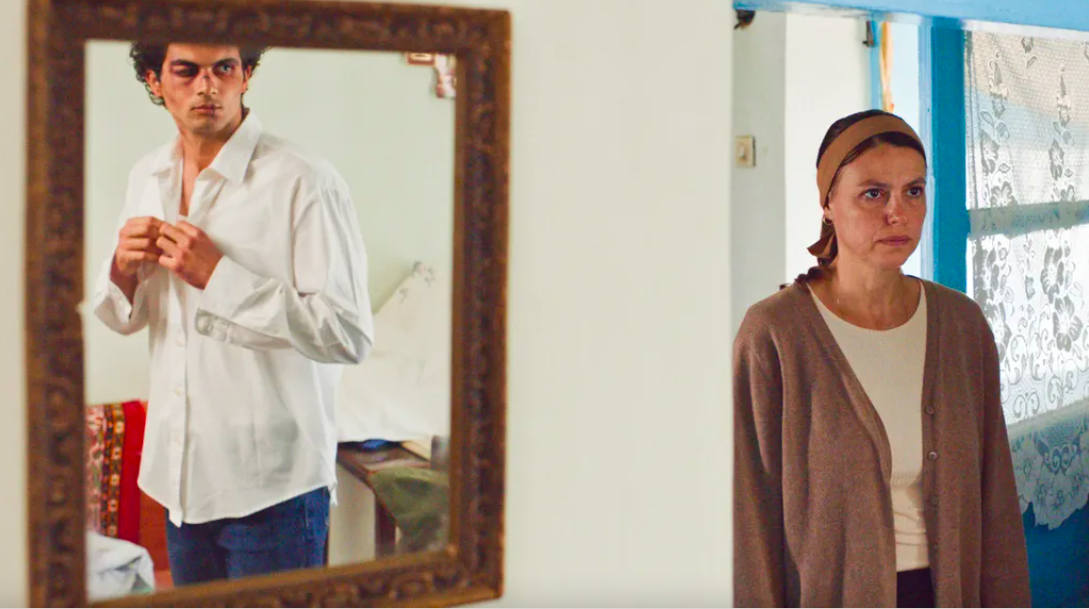
I don’t know how others felt when Ravel’s Boléro started playing towards the end of The New Year That Never Came, but I perceived it as a meticulously planned punch. This impact was also felt during its opening weekend at the Romanian box office, though by year’s end, Mureșeanu’s film held an honourable position but ranked well below titles like Buzz House: The Movie or Death on Holiday. For its ambition to juggle numerous characters and stories while remaining accessible – and with such a thoughtfully conceived ending – it deserves a place in the recent canon of Romanian films that, unlike the two mentioned above, carefully and almost classically premeditate their effect on the audience.
Three Kilometres to the End of the World tackles slippery, contemporary issues in Romanian society, with the assault of a gay teenager in a Danube Delta village serving as the trigger for a snowball effect that brings other problems to light as the story unfolds. However, it’s not this confrontation between traditional and modern that left the deepest impression on me. Instead, it was the environment Pârvu and co-writer Miruna Berescu created for the story, Pârvu’s occasional departure from the rules of the so-called New Romanian Cinema, and his thoughtful engagement with traditionalist perspectives.
I’m slightly biased when it comes to Zagor’s Death, as I happen to know the director. But even in other circumstances, I would have admired the concept of this documentary about a lonely old man, evicted from one dwelling to another in Cluj-Napoca, shot with an old camera by the protagonist himself and reassembled after his death by director Adrian Dohotaru and editor Alexandru Popescu. It’s the video chronicle of a man pushed to the margins by a prosperous society, recounting his sorrows through his own footage.
***
– Anca Vancu
- Holy Week (dir. Andrei Cohn)
- Eight Postcards from Utopia (dir. Radu Jude, Christian Ferencz-Flatz)
- Alice On & Off (dir. Isabela Tent)
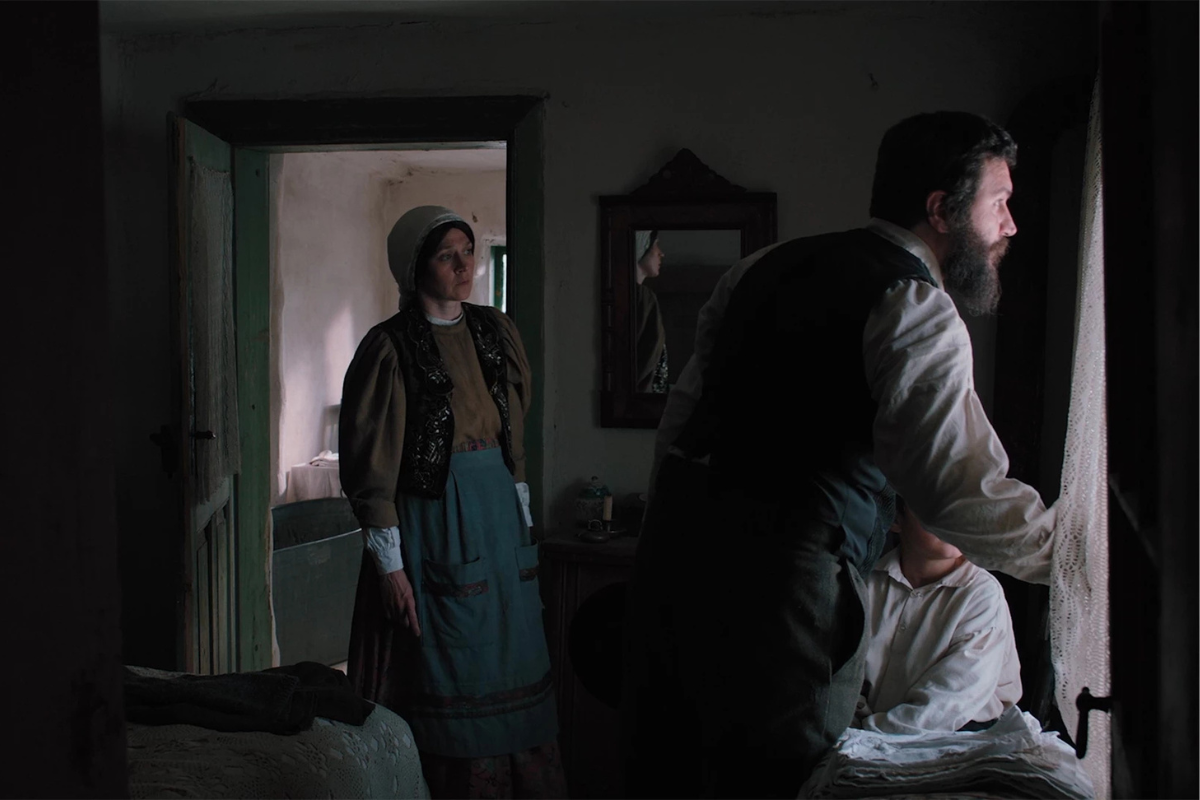
“An evil that can very easily appear as good,” says director Andrei Cohn in his Films in Frame interview, discussing one of the central themes of Holy Week, which runs through the film like a red thread. Evil lurks amidst the beautiful landscapes and compositions crafted by director of photography Andrei Butică. It can be sensed in the unsettling gaze of Gheorghiță (played by Ciprian Chiricheș, in what may be the most memorable performance of the year). It is present in the dynamics between villagers, where fear, paranoia, and social tensions become fuel for violence. Holy Week is the Romanian film that made me reflect the most during this complicated year. It explores how morally fragile we can be in a world that always seems on the brink of slipping into chaos.
“We interrupt this program for breaking news: Shrimp are back in Romania!” Astronauts levitating among sausages. The slogan “Prepare to be rich!” Intelligent ZPT particles that eliminate dandruff. Virgil Ianțu, a national pop figure, as the ambassador for Dracula Park. Eight Postcards from Utopia feels like a cultural road trip through the TV commercials of post-Ceaușescu Romania. In this one-hour-and-eleven-minute journey, everything is for sale – including the image of a “good life” that was still far away. And it prompts hysterical laughter.
Special Mentions:
A discovery: Magnificent Sky (dir. Alexandru Badea) is a journey into the sound universe of avant-garde composers Iancu Dumitrescu and Ana-Maria Avram, immersing us in their abstract, mysterious music and inviting meditation on loneliness, time, and death. The film grabbed me from the start, when, in a TV interview with the composers, the host asks, “Why do you torture the instruments so much?” “Because we need to squeeze every drop out of them,” says Dumitrescu. This exchange functions as an equation that decodes the entire film. Through experimental editing and varied textures trying to keep pace with the intensity of their compositions, the result is an audiovisual poem about the limits of artistic expression.
A very special film I hope to see in theatres next year: Maia – Portrait with Hands (dir. Alexandra Gulea), or the stories that can be told on screen with nothing but a fluttering dress.
***
– Alexa Florescu
- Holy Week (dir. Andrei Cohn)
- Ext. Car – Night (dir. Andrei Crețulescu)
- The New Year That Never Came (dir. Bogdan Mureșanu)
The Romanian films I’m taking away from 2024 are delightfully diverse, signalling that we’re in for some very interesting years ahead, both in the realm of auteur cinema and in the balance between commercial/mall-audience films and arthouse cinema. In an impressionistic selection based on the principle of “which films challenged me the most”, I’ll start with Holy Week by Andrei Cohn. Loosely based on the 1889 novella An Easter Torch by Romanian author Ion Luca Caragiale, Cohn probes the antisemitic and xenophobic roots of Romanian society. While it felt necessary when I saw it in June at TIFF, after the political chaos of these last weeks of the year, the film now feels like a punch to the gut and a must-see. If it were to fit any genre, I’d call it a psycho-social thriller, as its explosive tension is rooted in the fear of otherness in all its forms and effects – from terror to violence, from terror to defensiveness.
Ext. Car – Night strikes me as the most unconventionally free and fluid film of recent years. Running 73 minutes, it features three single-take vignettes starring the same four actors (Șerban Pavlu, Andi Vasluianu, Rodica Lazăr, Dorian Boguță). It’s part horror film, where we enter mid-story without catching the ending, part comedy about the patchwork and cynicism of filmmaking, and part drama where four actors reflect, on a mountain road, on everything – good and bad – that has accumulated in the Romanian film industry over the past 20 years: fears, prejudices, loss of meaning, opportunism. A film brimming with references and love for cinema, it feels like a farewell ode to a school of thought and an era – in short, to the New Romanian Cinema (NCR).
I’ve been waiting for a film like The New Year That Never Came for at least 20 years – if only because it’s a perfect response for sceptics (and unfortunately, there are still many) of “too grim-Romanian films”. It bears none of the stylistic trademarks of any particular school, its characters are naturally written and played – even though it boasts an impressive cast of theatre actors – and it features a dynamic, sharp script despite tackling the critical days leading up to the Revolution. The film interweaves intersecting lives as History crashes down upon them, all set to the rhythm of Boléro. The cinematography, sound design, and production values are flawless and Netflix-like, which is entirely welcome, not compromising.
Even though some elements feel a bit contrived and connect too conveniently to be organically believable, The New Year That Never Came strikes a compelling and entertaining balance between auteur cinema and mainstream appeal – something I haven’t seen done this well since È pericoloso sporgersi / Sundays on Leave or The Happiest Girl in the World.
***
– Laura Mușat
- The New Year That Never Came (dir. Bogdan Mureșanu)
- Holy Week (dir. Andrei Cohn)
- Ext. Car – Night (dir. Andrei Crețulescu)
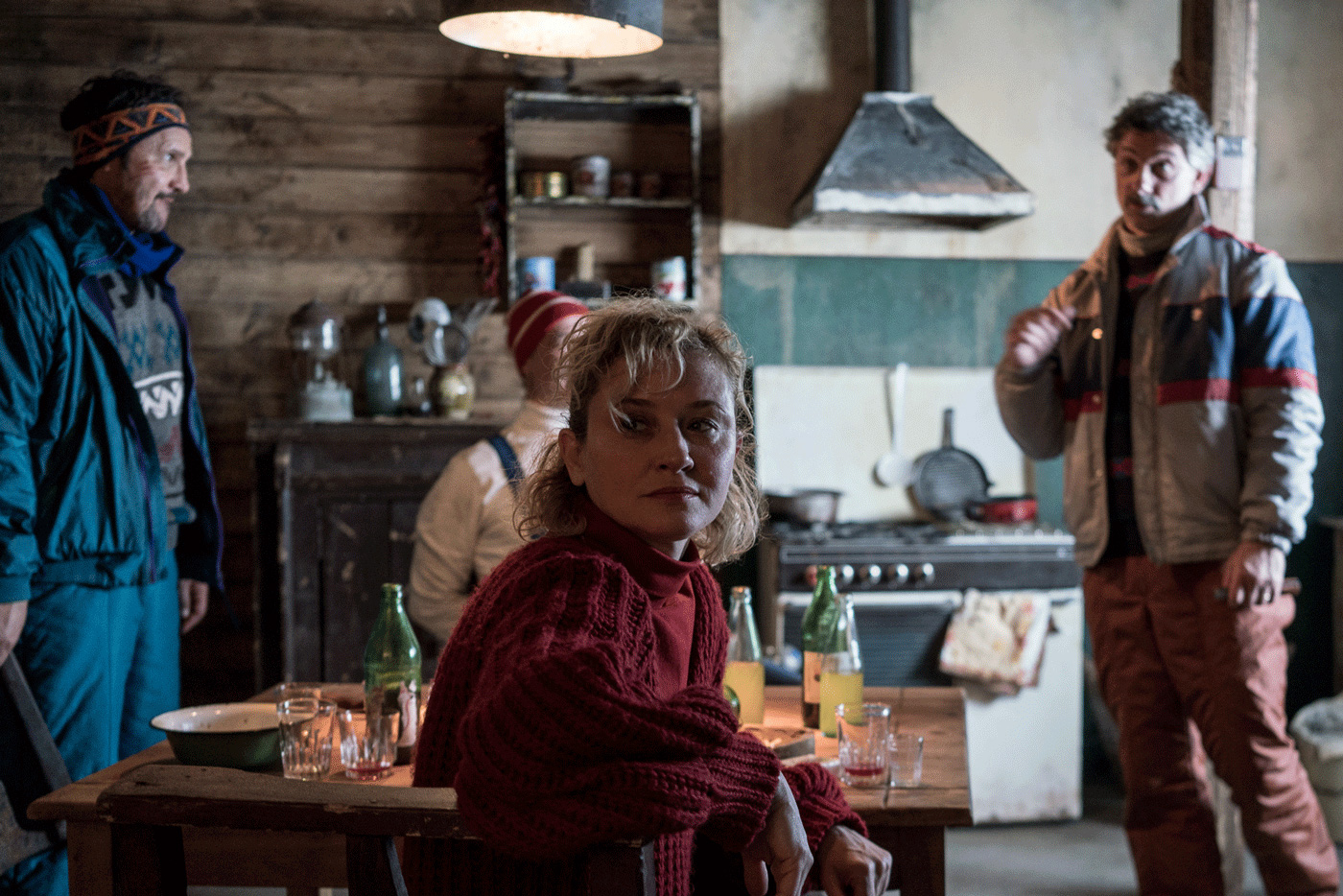
It’s been a strange year for Romanian cinema, with few titles to boast about. The list is short, which is why I tried to zoom out and select three films that innovated, rather than three that I found personally outstanding. That’s not to say I didn’t enjoy the chosen films, but rather that none of this year’s domestic releases blew me away.
The New Year That Never Came is my top pick because it manages to convey a highly significant event in Romania’s recent history in a way that is accessible to everyone. It keeps you on the edge of your seat until the very end – drawing you into the story and making you complicit in what the characters experience and what our parents lived through during the Revolution, even if you didn’t witness those moments yourself. It’s both a film for the general public and one that could easily be shown in schools to younger generations. Unlike most films about communism released over the past 35 years, this one stands out, and I couldn’t be happier about that.
I don’t think I’m exaggerating when I say Holy Week is the most visually stunning Romanian film produced in the past 30 years. Like Mureșanu’s film, the entire setting transports you to the era in which the story unfolds. Beyond the gorgeous cinematography and well-executed direction, it’s a film that remains highly relevant today, two centuries later. It reflects how easily we can treat others with disdain simply for being different from us, and how much our contrasting mentalities can truly divide us.
As for Ext. Car – Night, I admit I didn’t understand anything until halfway through the film. It took a second viewing to convince me it deserved my attention. I feel that Andrei Crețulescu cannot yet be defined as a director, but this might actually be an advantage – you never know what he’ll come up with next. Though he has some trademarks, he allows himself the freedom to experiment. This very quality is what I appreciated about this meta-film: it’s free, refreshing, unpretentious, and genuinely bold.
An article written by the magazine's team
